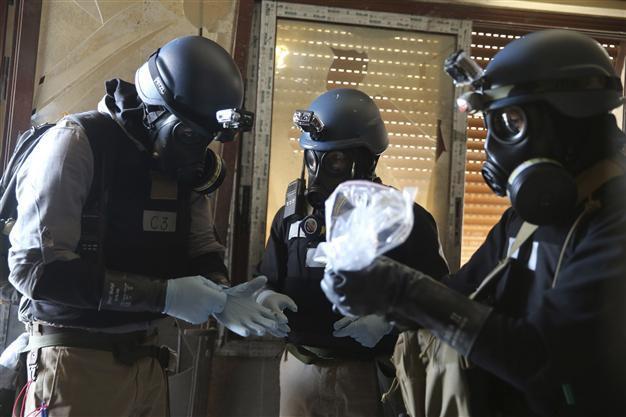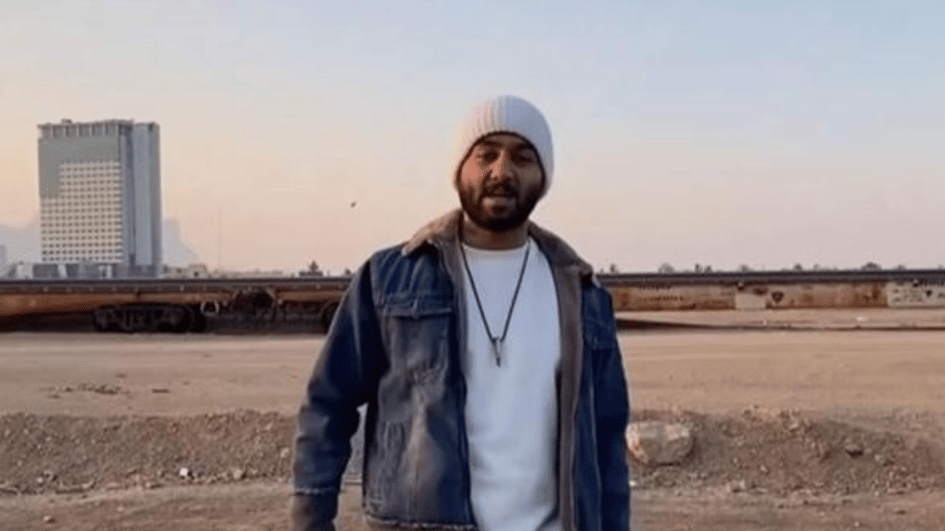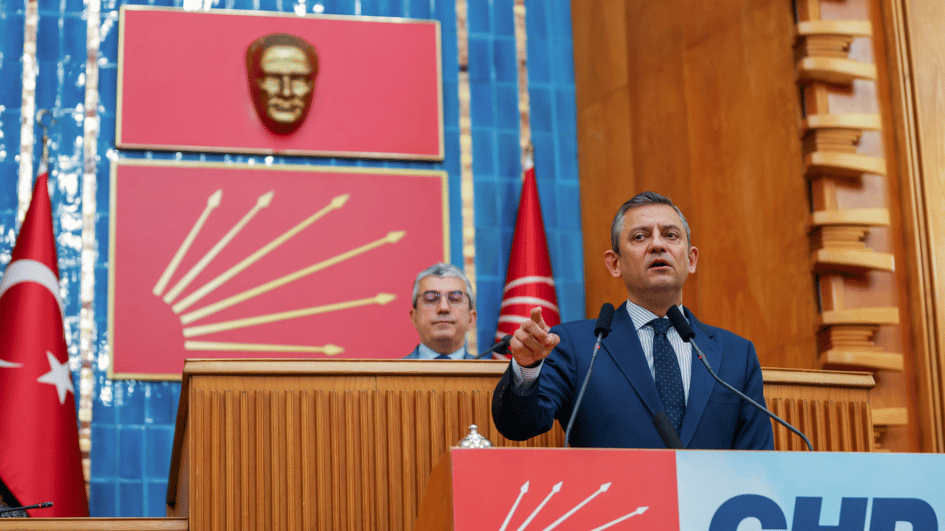All Syria chemical weapons placed under seal: watchdog
THE HAGUE / DAMASCUS - Agence France-Presse

A U.N. chemical weapons expert, wearing a gas mask, holds a plastic bag containing samples from one of the sites of an alleged chemical weapons attack in the Ain Tarma neighbourhood of Damascus in this August 29, 2013 file photo. REUTERS/Files
Syria has destroyed or rendered inoperable all of its declared chemical weapons production and mixing facilities, meeting a major deadline in an ambitious disarmament program, the international chemical weapons watchdog said Oct. 31.The Organization for the Prohibition of Chemical Weapons (OPCW), which won the Nobel Peace prize this month, said its teams had inspected 21 out of 23 chemical weapons sites across the country.
The other two were too dangerous to inspect, but the chemical equipment had already been moved to other sites that experts had visited, it said.
Syria “has completed the functional destruction of critical equipment for all of its declared chemical weapons production facilities and mixing/filling plants, rendering them inoperable,” it said, meeting a deadline to do so no later than Nov. 1.
Next deadline: Nov 15
The next deadline is Nov. 15, by when the OPCW and Syria must agree to a detailed plan of destruction, including how and where to destroy more than 1,000 metric tons of toxic agents and munitions. Inspectors have placed Syria’s entire declared stock of chemical weapons and agents under tamper-proof seal, the OPCW.
“All stocks of chemical weapons and agents have been placed under seals that are impossible to break,” OPCW spokesman Christian Chartier told Agence France-Presse, adding that the seals were “tamper proof.”
“These are 1,000 tons of chemical agents (which can be used to make weapons) and 290 tons of chemical weapons,” Chartier said. “The weapons and agents remain at their respective sites, we’re not yet at the stage of moving them,” Chartier said.
Under a Russian-American brokered deal, Damascus agreed to destroy all its chemical weapons after Washington threatened to use force in response to the killing of hundreds of people in a sarin attack on the outskirts of Damascus on Aug. 21.
The OPCW mission is being undertaken in the midst of the civil war, which has killed more than 100,000 people.
The unprecedented conditions had raised concerns that the violence would impede the disarmament, but the OPCW says Syrian authorities have been cooperating with the weapons experts, who have been able to visit all but three of the chemical sites.
Syrian authorities said that “the chemical weapons program items removed from these sites were moved to other declared sites,” an OPCW document said. “These sites holding items from abandoned facilities were inspected.”
The OPCW has not said which sites it has been unable to visit, but a source briefed on their operations said one of them was in the Aleppo area of northern Syria and another was in Damascus province.
One major chemical weapons site is located close to the town of Safira, south-east of Aleppo. Assad’s forces have bombarded the town in recent weeks in an attempt to expel rebel fighters including al-Qaeda-linked brigades.
Kerry underlines dire Syria situation
WASHINGTON - Hürriyet Daily News
U.S. Secretary of State John Kerry has underlined the dire humanitarian situation in Syria and said more people need to realize the size of the catastrophe.“This is a human catastrophe of enormous proportions, because there are 4 million people displaced inside Syria and 2 million plus now outside. This has a profound impact on Jordan Lebanon, Iraq, and Turkey, and can create an even greater convergence of violence as sectarian violence breaks out at even greater levels,” Kerry told a group of journalists on Oct. 30.
He also mentioned previous humanitarian catastrophes. “Everyone remembers how people felt about the absence of response to the Rwanda Genocide,” Kerry said, adding that it had taken a long time to be able to respond to the massacres in Bosnia. Former President Bill Clinton eventually responded to the crisis without the approval of Congress, Kerry added.
















